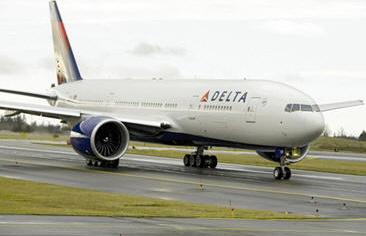|
|||||||||||
|
|
|
|||
|
By |
||||
 |
September 28, 2010 - Delta Air Lines maintenance division, Delta TechOps, has received Federal Aviation Administration (FAA) approval to implement Process Compensated Resonance Testing (PCRT), a method of non-destructive testing that identifies over-temperature conditions in aircraft engines.
The PCRT
inspection replaces the previous Original Equipment Manufacturer (OEM)
sample-based destructive inspection of suspect turbine blades. Developed by Vibrant Corporation, PCRT is a relatively new aerospace technology that provides environmentally friendly, cost-effective and fast reporting on the structural integrity of components. |
|||
|
|
||||
|
Specifically, PCRT
offers increased sensitivity to defects, less engine down time and
reduced waste from blades that test negative for over-temperature
conditions. Delta was awarded FAA approval as it begins the second year
of a three-year agreement with Vibrant as the exclusive commercial
aviation supplier.
?Delta has been
fantastic to partner with in our effort to display the full capabilities
of PCRT. In our tests, we are not only uncovering over-temps in the
blades, but also discovering cracking, inter-granular attacks and thin
airfoil walls. Delta TechOps and Vibrant?s collective efforts have not
gone unnoticed. Recently, the FAA and ATA recognized them as winners of
the 2010 FAA-ATA Non-Destructive Testing (NDT) ? The annual award recognizes a government or industry team that has developed and applied a technology, technique, process or policy that results in a more sensitive, reliable or cost-effective process for inspecting and testing aircraft or aviation components and systems. Delta has won this honor six times in eight years. Delta has expanded its original exploration of PCRT applications from turbine blades and vanes to aircraft wheels, fasteners and engine components, including applications targeting CFM 56-7b and PW 4000 engines. |
||||


